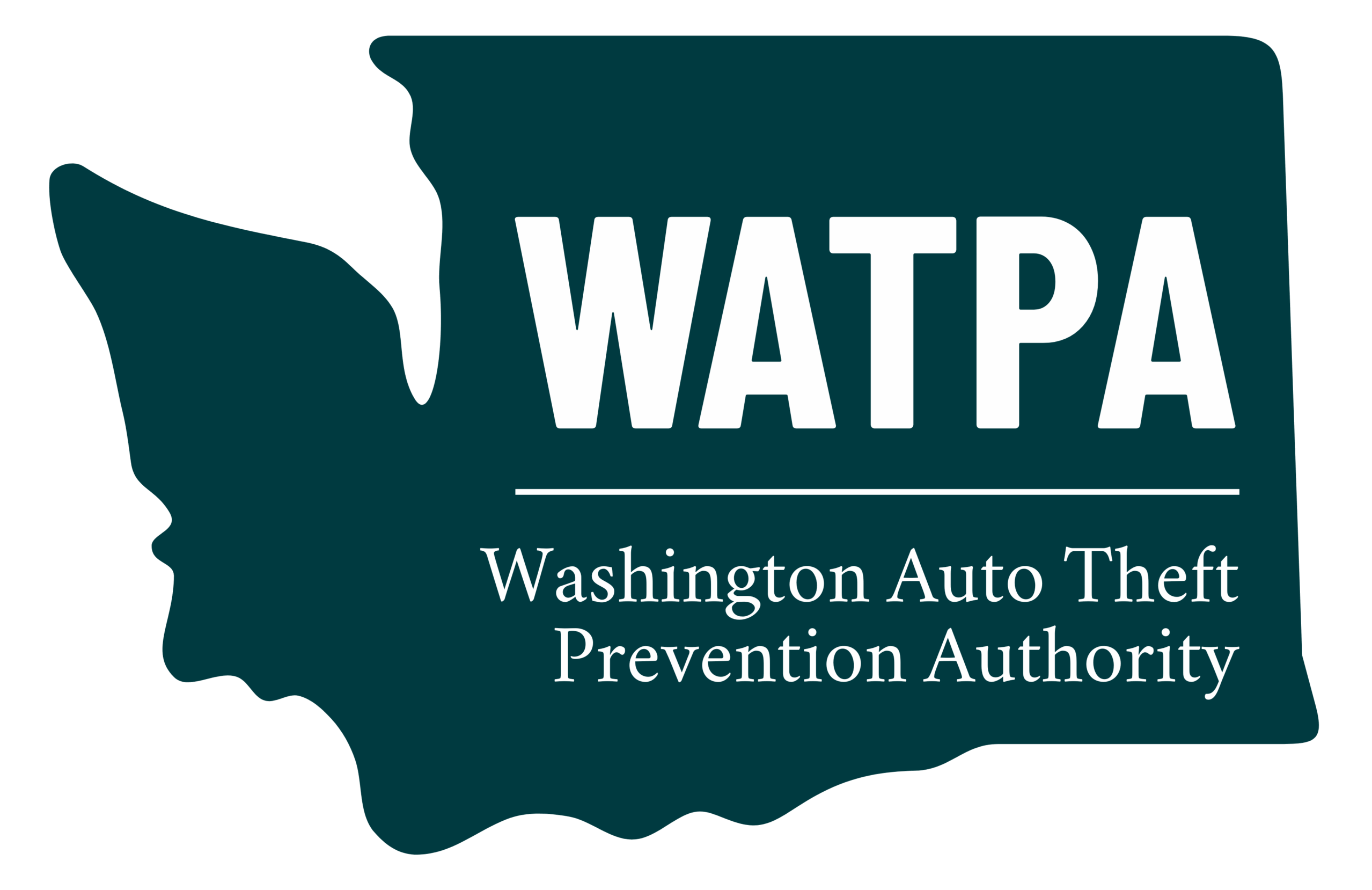WATPA Grant Program
The Washington Auto Theft Prevention Authority (WATPA) is authorized to provide financial support for use by public agencies to combat and prevent motor vehicle theft and other related crime. The Washington Auto Theft Prevention Authority, through a competitive grant process, allocates moneys appropriated from the Washington Auto Theft Prevention Account in the Washington State Treasury to public agencies for the purpose of establishing, maintaining, and supporting programs that are designed to prevent motor vehicle theft and other related crime. These shall include
- Financial support to prosecution agencies to increase the effectiveness of motor vehicle theft prosecution.
- Financial support to a unit of local government or a team consisting of units of local governments to increase the effectiveness of motor vehicle theft enforcement.
- Financial support for the procurement of equipment and technologies for use by law enforcement agencies for the purpose of enforcing motor vehicle theft laws.
- Financial support for programs that are designed to educate and assist the public in the prevention of motor vehicle theft.
Grant Policies & Procedures
The purpose of this manual is to provide guidance to grant applicants, recipients and sub-recipients regarding compliance with Washington Auto Theft Prevention Authority (WATPA) procedures and policies. This manual is not intended to be an all-encompassing statement of responsibilities, but is intended to identify the information and requirements most relevant to the grant recipient.
Semi Annual Report FAQ
Visit the SAR FAQ page for the answers to the most common questions. If you still have questions please contact the WATPA office at 360-486-2380.
Semi-Annual Report Form
This report is intended to provide a mechanism for all WATPA grant recipients to report their respective activities and accomplishments on a semi-annual basis. Grant recipients are asked to report grant funded activity during the past 6 months and are required to complete all sections of areas that are pertinent to WATPA funding. Activities of WATPA funded task force sergeants can be captured under task force activities.
Reporting forms are due by the 15th day of January and July of each grant year to ensure consistent reimbursement to grantees.
Non-supplanting Declaration
WATPA funds must be used to supplement existing funds for program activities and must not replace those funds that have been appropriated for the same purpose. Supplanting shall be the subject of application review, as well as pre-award review, postaward monitoring, and audit. If there is a potential presence of supplanting, the applicant or grantee will be required to supply documentation demonstrating that the reduction in non-WATPA resources occurred for reasons other than the receipt or expected receipt of WATPA funds.
Grant Reimbursements
Award recipients are to use a WATPA Reimbursement Request Form when submitting expense reimbursement requests to the Washington Auto Theft Prevention Authority. Attach support documents (receipts, invoices, etc.) to the Reimbursement Request Form. The reimbursement request form is a budget status summary and lists the approved award amount, total billings, current billings, past billings and current budget balance. It is to be completed each time an agency requests payment. If there are any questions regarding the reimbursement process please call or contact: Rachelle Harwood rharwood@waspc.org, 360-486-2380
Mini-Grant Project Report Form
Please use this form to report the status/outcome of your WATPA sponsored Mini-Grant program/project at its conclusion, or at six-months after the award – whichever comes first.
ALPR Guidelines for WA State LE
The License Plate Reader Guidelines are adopted by the Washington Auto Theft Prevention Authority as a means of improving the operation and management of License Plate Reader equipment and data and facilitating compliance with applicable laws. LPR technology’s primary function is to convert data taken in the field from vehicle plates and use it to further public safety.
